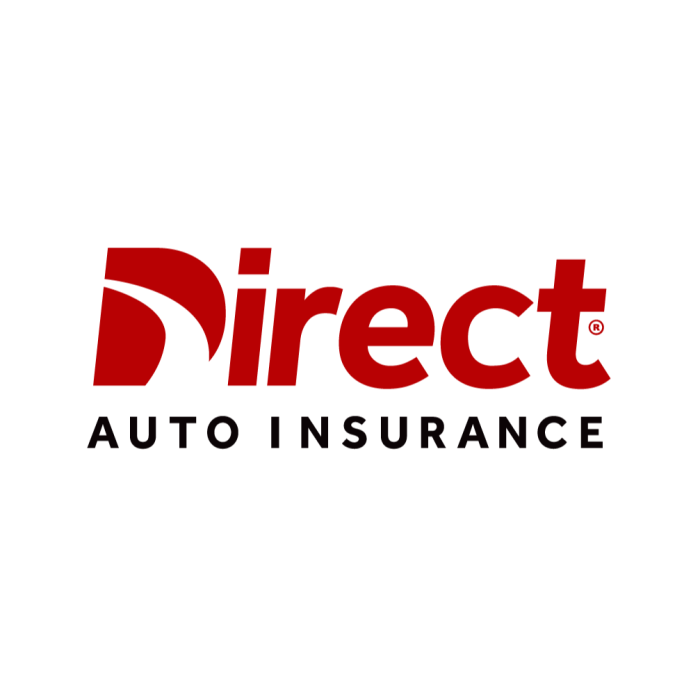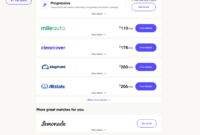In the realm of auto insurance, direct car insurance emerges as a game-changer, offering drivers a path to lower premiums and greater control over their coverage. This guide delves into the intricacies of direct car insurance, exploring its benefits, providers, and essential factors to consider, empowering you to make informed decisions that safeguard your vehicle and finances.
As you embark on this journey, we’ll unravel the complexities of direct car insurance, equipping you with the knowledge to navigate the insurance landscape with confidence. Join us as we explore the advantages, providers, and intricacies of direct car insurance, empowering you to make informed decisions that protect your vehicle and your financial well-being.
Direct Car Insurance Overview

Direct car insurance eliminates the middleman, allowing you to purchase insurance directly from the provider. Unlike traditional insurance, where agents act as intermediaries, direct insurance offers several advantages, including lower premiums and more control over coverage.
Direct car insurance offers you the opportunity to cut out the middleman and get the coverage you need at a more affordable price. To find the best deal for your needs, it’s worth getting a car insurance quote from a reputable provider.
You can get a car insurance quote online in minutes, and compare quotes from multiple insurers to ensure you’re getting the best value for your money. Direct car insurance can help you save money and get the coverage you need, so it’s definitely worth considering.
Direct car insurance policies vary in coverage options, including liability, collision, comprehensive, and personal injury protection. Each policy type provides different levels of protection, catering to specific needs and risk profiles.
Types of Direct Car Insurance Policies
- Liability insurance: Covers damages to other vehicles and property in an accident you cause.
- Collision insurance: Covers damages to your own vehicle in an accident, regardless of fault.
- Comprehensive insurance: Covers damages to your vehicle from non-collision events, such as theft, vandalism, and natural disasters.
- Personal injury protection (PIP): Covers medical expenses and lost wages for you and your passengers in an accident, regardless of fault.
Providers of Direct Car Insurance

Several major providers offer direct car insurance, each with its own coverage options, premiums, and customer service. Here are some of the leading providers:
- Geico: Known for low premiums and a user-friendly website.
- Progressive: Offers a wide range of coverage options and discounts.
- Allstate: Provides comprehensive coverage and a strong claims process.
- State Farm: One of the largest insurers in the US, with a wide network of agents.
- USAA: Exclusive to military members and their families, offering competitive premiums and discounts.
Factors to Consider When Choosing Direct Car Insurance
When selecting a direct car insurance provider, consider the following factors:
- Coverage options: Determine the level of protection you need based on your driving habits, vehicle value, and risk tolerance.
- Premiums: Compare premiums from multiple providers to find the best deal. Consider factors like driving history, vehicle type, and location.
- Customer service: Look for providers with a good reputation for responsive and helpful customer service.
- Financial stability: Choose providers with a strong financial standing to ensure they can pay claims promptly.
- Convenience: Consider providers with online portals or mobile apps for easy access to your policy and claims.
Claims Process for Direct Car Insurance
Filing a claim with direct car insurance is typically straightforward:
- Report the accident: Contact your insurance provider as soon as possible after an accident.
- Provide details: Give a detailed account of the accident, including the date, time, location, and other vehicles involved.
- File a claim: Submit a claim form online, by phone, or through the provider’s mobile app.
- Submit evidence: Provide documentation such as a police report, photos of the damage, and medical records if applicable.
- Review and settlement: The insurance company will review your claim and determine the settlement amount based on your policy coverage.
Advantages and Disadvantages of Direct Car Insurance
Advantages:
Direct car insurance offers convenient and tailored coverage options. However, to ensure you get the best deal, it’s crucial to compare car insurance quotes from multiple providers.
By comparing quotes, you can find a policy that aligns with your specific needs and budget, providing comprehensive protection for your vehicle and peace of mind while on the road.
- Lower premiums: Eliminating the middleman can result in lower premiums.
- More control: You have direct access to your policy and can make changes as needed.
- Convenience: Online portals and mobile apps provide easy access to your policy and claims.
Disadvantages:
- Limited advice: Without an agent, you may miss out on personalized advice and recommendations.
- Potential for bias: Providers may be biased towards their own products or services.
- Customer service issues: Some providers may have limited customer service hours or support.
Closure
In the realm of auto insurance, direct car insurance stands out as a beacon of innovation, offering drivers a path to lower premiums and greater control over their coverage.
By understanding the nuances of direct car insurance, you can make informed decisions that safeguard your vehicle and finances, ensuring a smoother and more secure driving experience.
Helpful Answers: Direct Car Insurance
What is the primary difference between direct car insurance and traditional insurance?
Direct car insurance eliminates the middleman, allowing you to purchase coverage directly from the insurance company, resulting in lower premiums and greater control over your policy.
Are there different types of direct car insurance policies available?
Yes, direct car insurance providers offer a range of policies, including liability-only coverage, comprehensive coverage, and collision coverage, allowing you to tailor your coverage to your specific needs.
What factors should I consider when choosing a direct car insurance provider?
Direct car insurance offers a range of benefits, including personalized coverage and competitive rates. If you’re looking for a comprehensive and tailored solution, consider auto car insurance.
Direct car insurance providers often work with reputable insurers, giving you access to reliable and affordable coverage.
By choosing direct car insurance, you can enjoy the convenience of managing your policy online and receiving personalized support.
When selecting a direct car insurance provider, consider their coverage options, premiums, customer service ratings, and financial stability to ensure you choose a reliable and affordable insurer.




